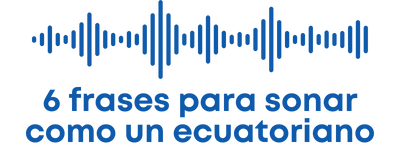Transcription:
I graduated from high school back in 2007.
The very last day, at the prom, I was trying to dance with one of my best friends.
[And I say “trying” because I can’t dance. I’ve tried to learn. I promise. But I can’t.]
Anyway. While we were “dancing” she announced something:
— I’m going to become a nun.
This was a surprise. I mean, I knew she was a religious person, but I never thought she was considering that.
I wished her the best, and a couple of months later, she left Ecuador. She had to go to Colombia in order to become a nun.
Why? Well, she explained her reasons to me, but honestly, I don’t remember.
The thing is, a couple of years later, she came back to Ecuador, so I had the chance to go see her.
She told me the address and the day they were accepting visitors, and I went there.
I was happy to see her. I think she was happy to see me. And we talked a lot.
[By the way, if you are seeing a good friend after some time, and you want to say something like ”It’s great to see you again”, a good Spanish phrase is “que gusto verte.”]
Back to my story, my friend and I talked a lot, and at some point, she told me that she had said to her “supervisor” [I don’t know what else to call her] that I was coming to visit her; that we were good friends from school, and that she was excited to see me.
Her actual words?
— El Rafa va a venir. (Literally: The Rafa is going to come.)
By the way, Rafa is short for Rafael, my real first name. Andrés is my middle name. But that’s not important here.
And when she said that, her supervisor told her something that she didn’t understand:
— La mesa, la silla, el Rafa.
Which means, the table, the chair, the Rafa.
The supervisor noticed my friend didn’t understand the phrase, so she just repeated it:
— La mesa, la silla, el Rafa. [The table, the chair, the Rafa]
Then my friend understood.
You know, when you are talking about an object, you use an article:
La mesa (the table), la silla (the chair), la casa (the house)….
But when you are talking about a person, you don’t use an article. Well, you shouldn’t, according to the rules of the language.
That’s why my friend was corrected when she said “el Rafa.”
For her that was the right way to talk about a person, and I can’t blame her. That’s how most Ecuadorians speak, at least in Quito and its surroundings.
To be honest, most of the time I don’t use an article before a person’s name. It’s not like I’m trying to speak correctly, I’m just used to speaking like that. But from time to time I say “el Rafa”, “el David” or “la Sofía” too.
It is common enough that when a person who is learning Spanish comes to Ecuador, after a while they end up speaking this way.
How do I know that?
Well, I volunteer in an American non-profit that operates in my city. Every year I meet some people who come from the US and I’ve heard how they speak after a year in the country.
All the time I hear phrases like “La Rachel y yo fuimos a Quito” (The Rachel and I went to Quito) or “Le has visto al Jorge” (Have you seen the Jorge?).
That might be the wrong way to say this, but it’s so common here that people either don’t care, or don’t even know it’s wrong.
As I’ve told you, each country has its own style when it comes to the language they speak, and there are no language police that are going to show up and fine you if you don’t follow every single rule.
So, when you come to Ecuador, be ready to hear this, and why not, to use that wrong, but Ecuadorian way to talk about a person’s name.
Just remember that not every single person speaks like that, so someone might possibly correct you, and if that happens you can just say “I know it’s wrong”, and surprise them.
